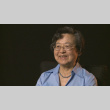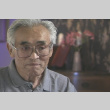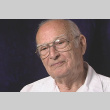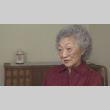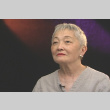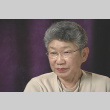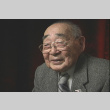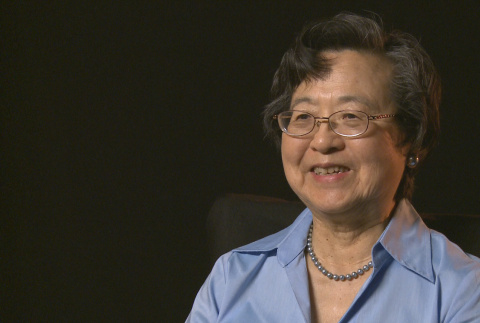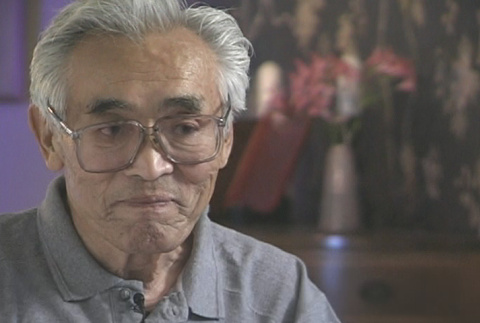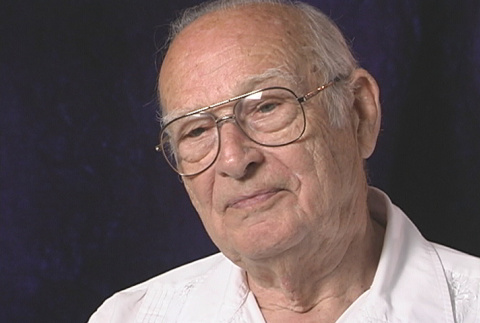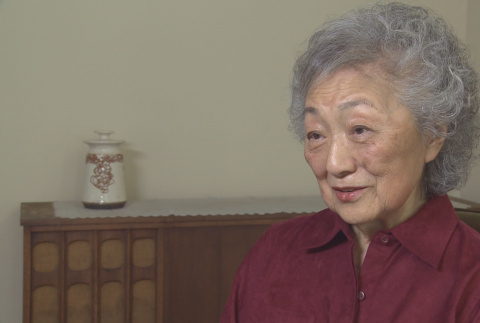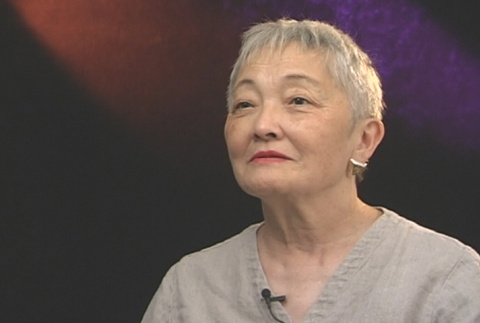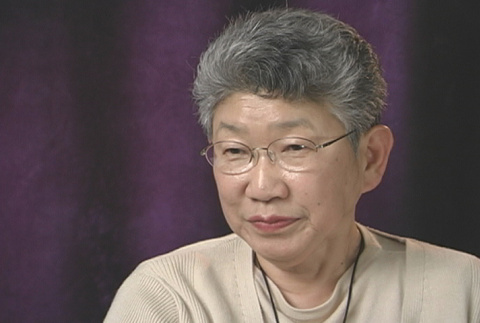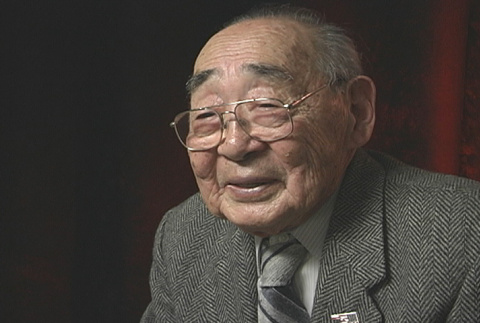Topics
World War II -- Concentration camps -- Education (485)
World War II -- Concentration camps -- Funerals (241)
World War II -- Concentration camps -- Work and jobs (209)
World War II -- Concentration camps -- Publications -- Minidoka Irrigator (188)
World War II -- Concentration camps -- Facilities, services, and camp administration (164)
World War II -- Concentration camps -- Living conditions (153)
World War II -- Concentration camps -- Social and recreational activities (146)
World War II -- Concentration camps (139)
Arts and literature -- Literary arts -- Essays (137)
World War II -- Administration -- War Relocation Authority (WRA) (96)
Industry and employment -- Agriculture (92)
World War II -- Concentration camps -- Sports (86)
World War II -- Concentration camps -- Religion (81)
World War II -- Leaving camp -- "Resettlement" (76)
Identity and values -- Nisei (67)
World War II -- Concentration camps -- Arts and literature (63)
Religion and churches -- Christianity (57)
World War II -- Concentration camps -- Holidays and festivals (56)
World War II -- Military service (56)
World War II -- Family reunification (44)
Community activities -- Sports -- Baseball (43)
World War II -- Concentration camps -- Medical care and health issues (42)
World War II -- Military service -- 442nd Regimental Combat Team (42)
World War II -- Concentration camps -- Impact of incarceration (39)
Identity and values -- Issei (36)
World War II -- U.S. Army internment camps (36)
World War II -- Pearl Harbor and aftermath -- Arrest, searches, and seizures (34)
World War II -- Administration -- Registration and the "loyalty questionnaire" (34)
World War II -- Support from the non-Japanese American community (33)
World War II -- Leaving camp -- Work leave (32)
World War II -- Leaving camp (30)
World War II -- Concentration camps -- The journey (30)
World War II -- Concentration camps -- Construction (29)
World War II -- Concentration camps -- Food (28)
Industry and employment -- Firefighting (24)
Religion and churches -- Buddhism (24)
World War II -- Resistance and dissidence -- Draft resistance (24)
Education -- Secondary education (23)
World War II -- Concentration camps -- Publications (23)
Reflections on the past (21)
Arts and literature -- Visual arts (20)
Reflections on the past -- Camp pilgrimages (19)
World War II -- Military service -- 100th Infantry Battalion (17)
Identity and values -- Children (17)
World War II -- "Enemy alien" classification (17)
Arts and literature -- Visual arts -- Ikebana (15)
Race and racism -- Discrimination (15)
Redress and reparations (14)
World War II -- Concentration camps -- Weddings (14)
Community activities -- Associations and organizations -- Boy Scouts and Girl Scouts of America (14)
Journalism and media -- Community publications -- Pacific Citizen (14)
Identity and values -- Family (14)
World War II -- Temporary Assembly Centers (14)
Geographic communities -- Washington -- Seattle (13)
Identity and values -- Women (13)
World War II -- Leaving camp -- Student leave (12)
Education -- Primary education (12)
Industry and employment -- Dentistry (12)
World War II -- Concentration camps -- Conflicts, intimidation, and violence (11)
Arts and literature -- Performing arts -- Music (11)
Education -- Japanese language schools (11)
Race and racism (11)
World War II -- Temporary Assembly Centers -- Work and jobs (10)
Journalism and media -- Mass media (9)
Reflections on the past -- Days of remembrance (9)
Identity and values -- Kibei (9)
World War II -- Leaving camp -- Returning home (8)
Activism and involvement -- Civil rights (8)
Industry and employment -- Educators (8)
World War II -- Administration (8)
World War II -- Mass removal ("evacuation") (8)
World War II -- Department of Justice camps (8)
World War II -- Military service -- Women's Army Corps/Women's Army Auxiliary Corps (7)
Community activities -- Sports -- Basketball (6)
Education -- Higher education (6)
Industry and employment -- Carpentry (6)
Identity and values (6)
World War II -- Pearl Harbor and aftermath (6)
Identity and values -- Youth (6)
World War II -- Temporary Assembly Centers -- Living conditions (6)
World War II -- Resistance and dissidence -- Supreme Court cases -- Gordon Hirabayashi (6)
Immigration and citizenship (5)
World War II -- Mass removal ("evacuation") -- Preparation (5)
Community activities -- Associations and organizations -- The Japanese American Citizens League (5)
Arts and literature -- Performing arts -- Dance (5)
Geographic communities -- Oregon -- Portland (5)
Geographic communities -- Washington -- Bainbridge Island (5)
Community activities -- Conventions and conferences (5)
Race and racism -- Cross-racial relations (5)
Religion and churches -- Religious organizations (5)
World War II (5)
World War II -- Concentration camps -- Publications -- Newell Star (5)
Industry and employment (5)
Arts and literature -- Visual arts -- Painting (4)
World War II -- Japanese American Citizens League activities (4)
World War II -- Concentration camps -- Conflicts, intimidation, and violence -- Manzanar riot/uprising (4)
World War II -- Leaving camp -- Work leave -- Temporary agricultural work leave (4)
Identity and values -- Japanese American identity (4)
World War II -- Economic losses (4)
World War II -- Resistance and dissidence -- Segregation and Tule Lake (4)
World War II -- Resistance and dissidence (4)
World War II -- Resistance and dissidence -- Other forms of resistance (4)
World War II -- Resistance and dissidence -- Impact of resistance on families (3)
World War II -- Mass removal ("evacuation") -- "Evacuation Day" (3)
Arts and literature -- Literary arts -- Poetry (3)
Journalism and media -- Community publications (3)
Geographic communities -- California (3)
Geographic communities -- Illinois -- Chicago (3)
Community activities -- Sports -- Golf (3)
Industry and employment -- Barbering and hairdressing (3)
Journalism and media (3)
Geographic communities -- Idaho (3)
Japan (2)
Community activities (2)
Japan -- Pre-World War II (2)
Japan -- Post-World War II (2)
Immigration and citizenship -- Naturalization (2)
Community activities -- Associations and organizations -- Economic associations (2)
World War II -- Pearl Harbor and aftermath -- Decision to incarcerate (2)
Community activities -- Festivals, celebrations, and holidays (2)
Arts and literature -- Performing arts -- Theater (2)
Arts and literature -- Visual arts -- Drawing (2)
Community activities -- Nihonmachi ("Japantowns") (2)
Community activities -- Recreational activities -- Picnics (2)
Education -- Public schools (2)
Identity and values -- Multiracial (2)
Identity and values -- Sansei (2)
Immigration and citizenship -- Picture brides (2)
Industry and employment -- Agriculture -- Farming (2)
Education -- Church-run schools (2)
Redress and reparations -- Commission on Wartime Relocation and Internment of Civilians (CWRIC) (2)
Immigration and citizenship -- Arrival (2)
Industry and employment -- Gardening (2)
Military service -- Draft (2)
Immigration and citizenship -- Law and legislation -- Alien land laws (2)
World War II -- Mass removal ("evacuation") -- Japanese American community responses (2)
World War II -- Concentration camps -- Politics and self-governance (2)
World War II -- Resistance and dissidence -- Expatriation/repatriation/deportation (1)
Redress and reparations -- Commission on Wartime Relocation and Internment of Civilians (CWRIC) -- Hearings (1)
Redress and reparations -- Receiving redress checks and apology (1)
Industry and employment -- Hotel industry (1)
World War II -- Resistance and dissidence -- Supreme Court cases -- Minoru Yasui (1)
Community activities -- Associations and organizations (1)
Japan -- During World War II (1)
Immigration and citizenship -- Anti-immigration sentiment (1)
Race and racism -- "Yellow Peril" (1)
World War II -- Pearl Harbor and aftermath -- "War hysteria" (1)
Military service -- Veterans' organizations (1)
World War II -- Temporary Assembly Centers -- The journey (1)
World War II -- Concentration camps -- Work and jobs -- Organized labor (1)
Military service -- Postwar occupation of Japan (1)
Immigration and citizenship -- Life in Japan and reasons for leaving (1)
World War II -- Temporary Assembly Centers -- Facilities, services, and camp administration (1)
Community activities -- Associations and organizations -- Community and social service associations (1)
World War II -- Temporary Assembly Centers -- Publications -- Puyallup Camp Harmony News-Letter (1)
Activism and involvement -- Politics (1)
Community activities -- Sports (1)
Arts and literature -- Visual arts -- Carpentry and woodworking (1)
Geographic communities -- California -- Los Angeles (1)
Geographic communities -- Hawai'i (1)
Geographic communities -- Oregon (1)
Geographic communities -- Washington (1)
Military service (1)
Education (1)
Community activities -- Sports -- Sumo (1)
Industry and employment -- Journalism (1)
Industry and employment -- Law (1)
Industry and employment -- Mining (1)
Industry and employment -- Small business -- Laundromats (1)
Japan -- Government and politics (1)
Arts and literature (1)
World War II -- Temporary Assembly Centers -- Impacts of incarceration (1)
World War II -- Concentration camps -- Conflicts, intimidation, and violence -- Poston strike (1)
World War II -- Immigration detention centers (1)
World War II -- Military service -- Prisoners of war (1)
Community activities -- Associations and organizations -- YMCA/YWCA (1)
Geographic communities -- Alaska (1)
Geographic communities -- California -- Oakland (1)
Geographic communities -- Minnesota -- Minneapolis (1)
Geographic communities -- Nevada (1)
Geographic communities -- Utah (1)
Geographic communities -- Wyoming (1)
Identity and values -- Elders (1)
Identity and values -- Parents (1)
World War II -- Sabotage and espionage (1)
World War II -- Temporary Assembly Centers -- Politics and self-governance (1)
World War II -- Temporary Assembly Centers -- Social relations (1)
World War II -- Administration -- Community Analysis Section (1)
World War II -- Administration -- Western Defense Command (1)
World War II -- Non-incarcerated Japanese Americans (1)
Military service -- Enlisting and recruiting (1)
World War II -- Non-incarcerated Japanese Americans -- "Voluntary evacuation" (1)
World War II -- Temporary Assembly Centers -- Social and recreational activities (1)
Industry and employment -- Agriculture -- Farmers' markets and stands (1)
Industry and employment -- Timber (1)
Format
Still Image (1476)
Document (1083)
Oral History (617)
Audio/Visual (1)
Genre
Photographs (1406)
Interviews (618)
Correspondence (340)
Miscellaneous Documents (246)
Periodicals (235)
Essays (142)
Clippings (36)
Ephemera (32)
Diaries (22)
Landscapes (21)
Usage
DDR Creative Commons (1460)
Public domain (1276)
Copyright, with special 3rd-party grant permitted (281)
Copyright restricted (160)
Use <Ctrl> or (⌘) keys to select multiple terms
